Trump administration ‘misled court’ about need for transgender military ban
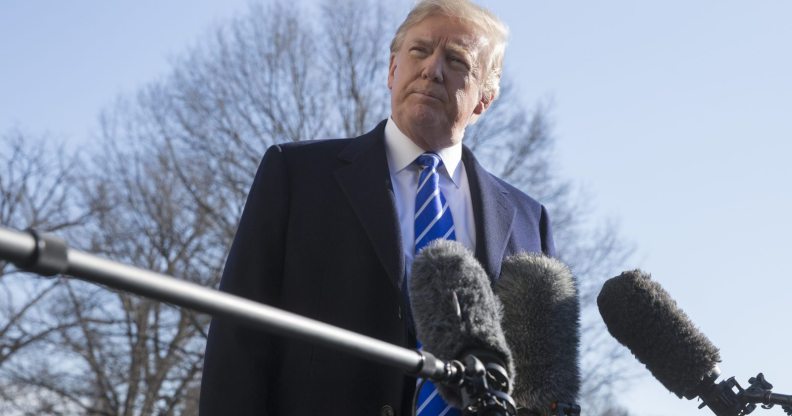
(Photo: Chris Kleponis-Pool/Getty Images)
Three former senior US military chiefs have contradicted the Trump administration’s claims in a battle over transgender soldiers.
As a January 1 deadline approaches for the military to begin to accept transgender troops under an Obama-era directive, the Trump administration has been to court to seek to push back the deadline and continue its policy of banning them.
The administration has been seeking an emergency stay to block the deadline, claiming that accepting transgender people would involve a massive bureaucratic burden and that 23,000 staff would need in-depth training on transgender issues.
It claimed: “There are considerable requirements associated with implementing this significant and complex policy change.
“Those personnel directly responsible for execution number in the tens of thousands and are geographically dispersed across the United States.
“Specifically, implementation of a new accession policy necessitates preparation, training, and communication to ensure those responsible for application of the accession standards are thoroughly versed in the policy and its implementation procedures.”
The administration claimed that 20,367 recruiters and 2,785 employees would need training to “have a working knowledge or in-depth medical understanding of the standards and identity validation requirements associated with processing an applicant under new requirements”.
However, the claim has been rubbished in a document published today by three former military chiefs.
The three former surgeons general, Vice Admiral Donald C. Arthur, Major General Gale Pollock, and Rear Admiral Alan M. Steinman, found that contrary to the claims, the training process “is not complicated or time-consuming”.
They wrote: “Trump administration officials have claimed that in order to begin processing transgender applicants for military service
“According to the administration, training will be difficult and complex, because “no other accession standard has been implemented that presents such a multifaceted review of an applicant’s medical history” and because the military will have to “ensure that the ‘tens of thousands’ of service members ‘dispersed across the United States’ responsible for implementing accession policies ‘have a working knowledge or in-depth medical understanding of the standards.’
“[But] of the 23,000 personnel who DOD claims must be trained to process transgender applicants, 20,367 (89 percent) are recruiters.
“Recruiters do not need additional training to process applications from transgender candidates. All service members who
are now recruiters have received training along with the rest of the force in inclusive retention policy for transgender personnel, so they understand the basic outlines of policy and the basic facts of gender identity.”
They added: “Recruiters do not need to understand transgender medicine or transgender accession standards any more than they need to understand cardiology or cardiology accession standards.
“Recruiters help candidates fill out medical disclosure forms and determine whether medical records are needed and what documentation may be necessary. But they do not diagnose gender dysphoria.”
Recruiters’ only relevant responsibility is to help applicants prepare a required package of medical information, a simple and straightforward task.
“According to one of the nation’s top experts in accession policies and practices, sending a one-page instruction to all recruiting stations would suffice if it has not already been done”
Trump announced on Twitter earlier this year that all transgender servicepeople would be banned from the US armed forces, claiming they were a burden on the military.
However, the ban was quickly quashed by courts after a string of legal battles.
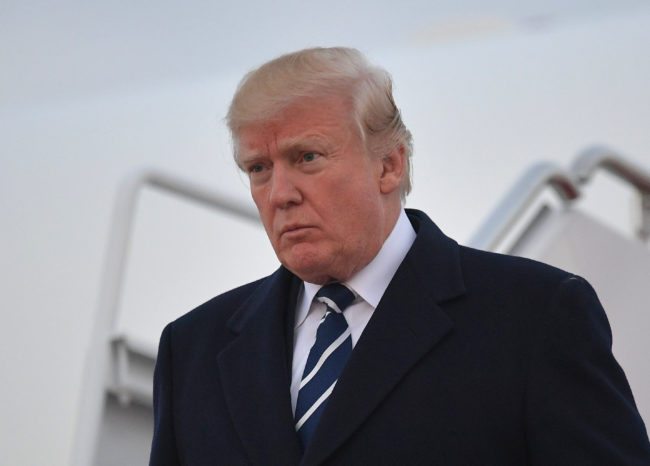
(Getty)
The Trump administration has recently sought an emergency injunction to allow it to continue banning transgender personnel, after a DC judge ruled that transgender soldiers must be allowed to join the military from January 1.
It is unclear exactly how many trans people will be rushing to sign up, however, given the extremely uncertain situation and the live legal battles that could quickly end their careers.
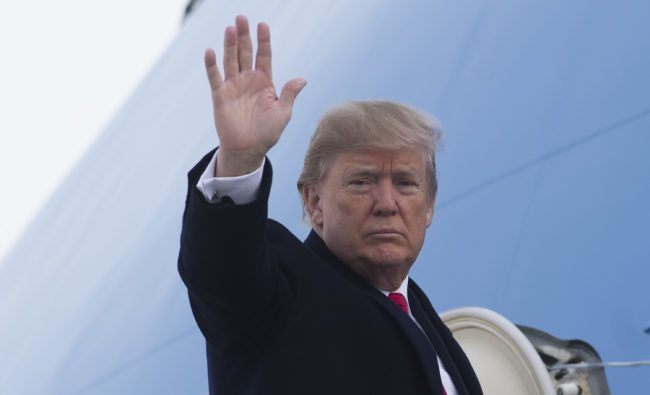
(Getty)
The challenge to Trump policy was brought forward by the National Center for Lesbian Rights (NCLR) and GLBTQ Legal Advocates & Defenders (GLAD).
Pentagon spokesperson Maj. David Eastburn confirmed to TIME that the says the enlistment of transgender recruits will start on January 1 and continue amid the legal battles.
Sarah Kate Ellis, President and CEO of GLAAD, said: “[The] legal victory is the latest step towards preventing Trump’s bigoted trans military ban from ever going into full effect.
“The Trump administration is struggling to provide any evidence that open trans enlistment be must be delayed because none exists beyond their own hate-fueled anti-LGBTQ agenda.”
The deadline has come about due to an Obama-era directive to actively permit the enrolment of transgender people.
The directive was set to come into effect earlier this year, but was delayed until 2018 as Trump announced the controversial ban on transgender troops.
US District Judge Colleen Kollar-Kotelly issued the order imposing the January 1 deadline, refusing to let the administration push it back any further.
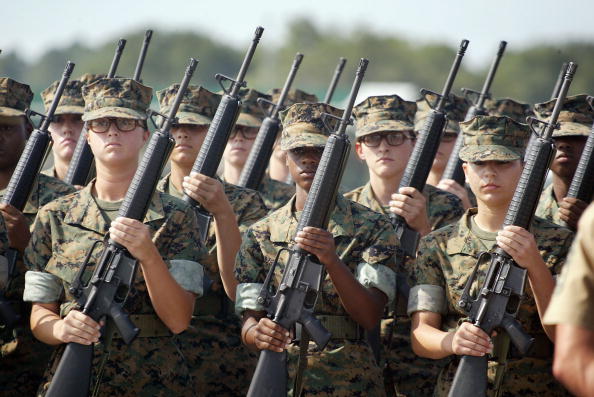
Marine Corps recruits practice drill (Photo by Scott Olson/Getty Images)
She wrote: “[Existing] policies allowed for the accession of transgender individuals into the military beginning on January 1, 2018.
“Any action by any of the Defendants that changes this status quo is preliminarily enjoined.”
Trump stirred anger by announcing in July that he would impose a ban on transgender soldiers serving openly in the military.
He claimed in a string of tweets that the military “cannot be burdened with the tremendous medical costs and disruption that transgender in the military would entail”.
But Kollar-Kotelly ruled that a lawsuit brought against the proposed ban by five active soldiers with more than 60 combined years of service was likely to win.
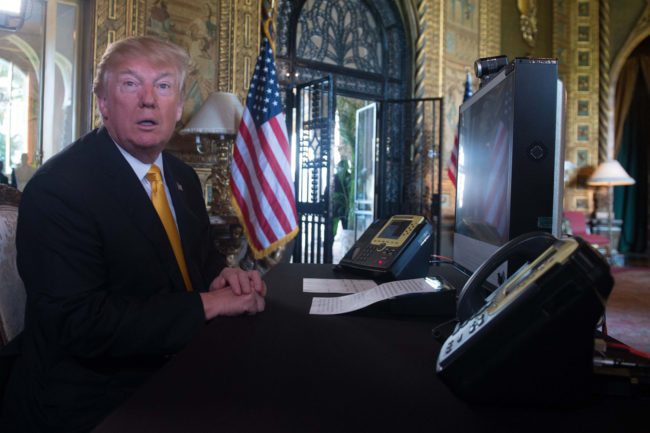
(Getty)
In a separate legal battle District Judge Marvin J. Garbis went further, enabling trans troops who have scheduled transition-related medical care to continue with their treatment with no deadline.
The Maryland judge ruled that Trump’s potential prohibition was “egregiously offensive,” with no evidence to show it “was necessary for any legitimate national interest.”
The case, brought by the ACLU of Maryland on behalf of six soldiers, led District Judge Garbis to state that Trump’s ban “was not driven by genuine concerns regarding military efficacy.”
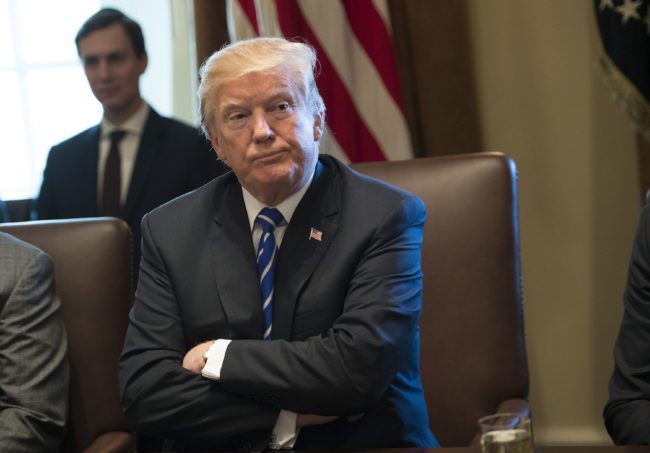
(Getty)
He added the proposal was a betrayal of trans troops who were already serving, and one which could not even “survive a rational review” in court.
“The lack of any justification for the abrupt policy change,” he wrote, “combined with the discriminatory impact to a group of our military service members who have served our country capably and honorably, cannot possibly constitute a legitimate governmental interest.”

(Getty)
He said that for Trump to remove constitutionally given freedoms from a group of individuals was “so outrageous” as to “shock the conscience.”
Garbis tore into Trump’s inflammatory tweets specifically, writing that his sudden announcement “certainly can be considered shocking under the circumstances.”

